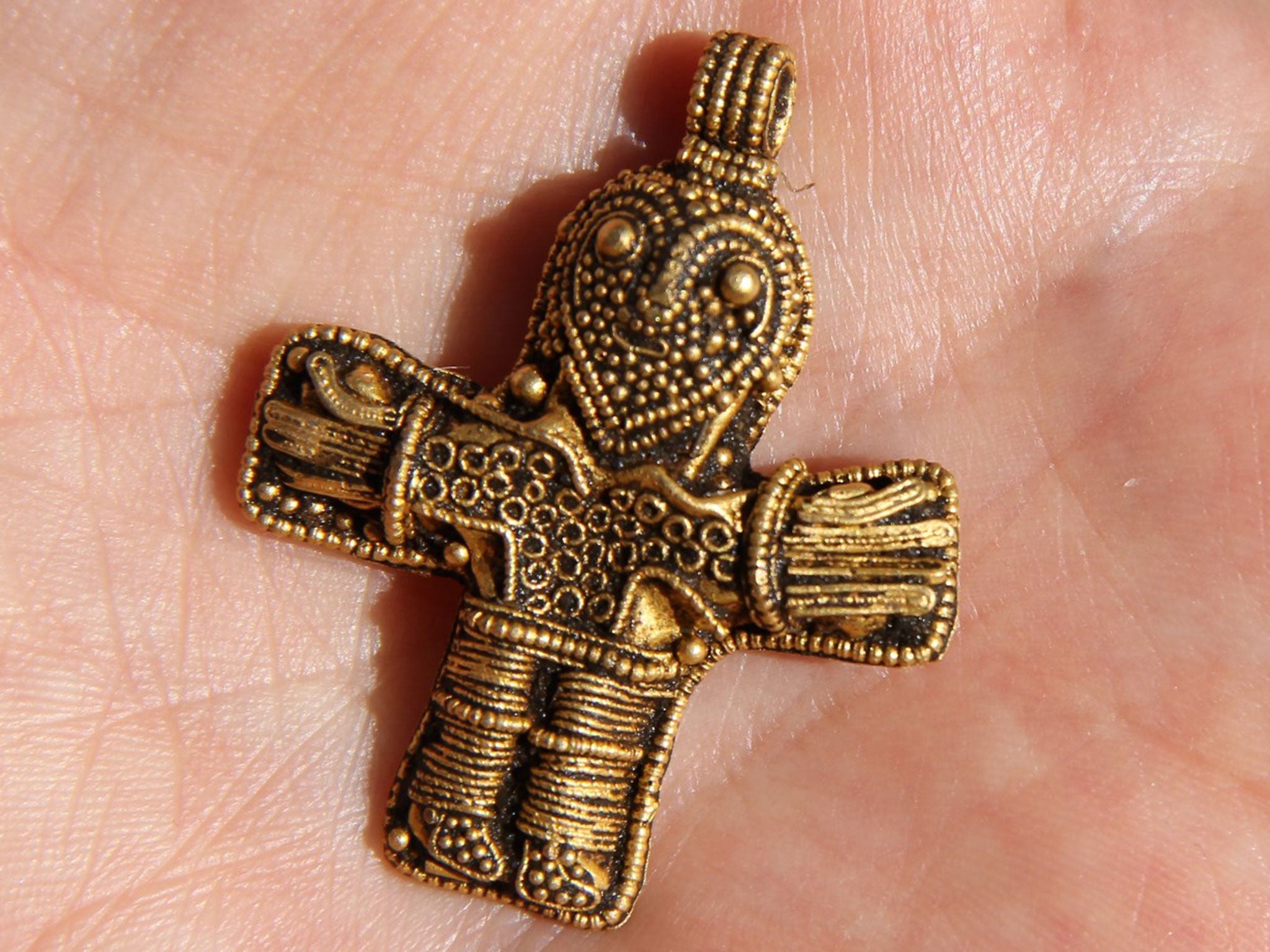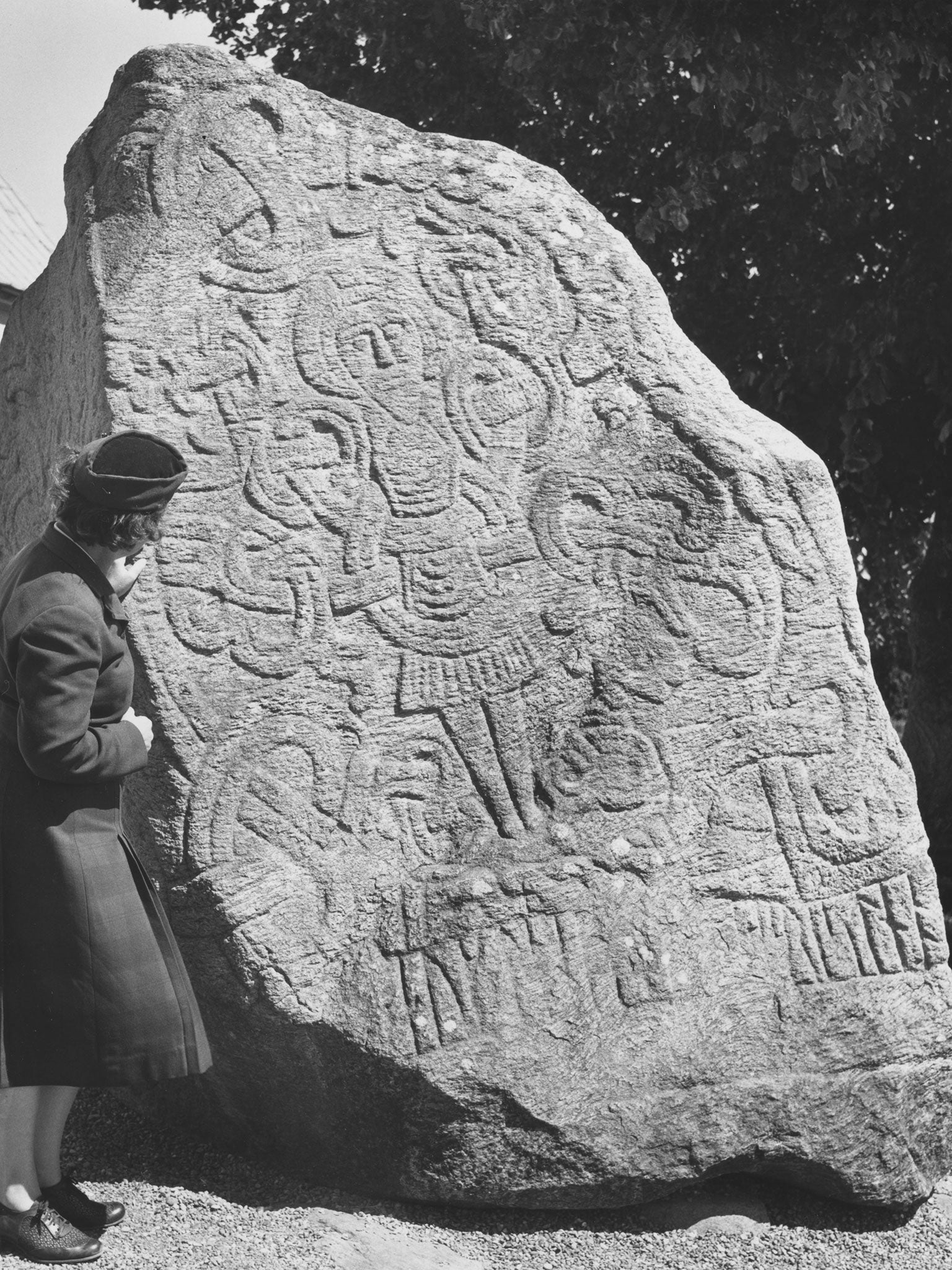Amateur metal detector finds crucifix that may change the historical record of Christianity
An ancient crucifix has been found in remarkable condition

An amateur metal detector has made a discovery that experts think could change our understanding of Christianity in Denmark.
Dennis Fabricius Holm was enjoying an afternoon off work when he found a Birka crucifix pendant in a field near the town of Aunslev, Østfyn.
“I got off early on Friday, so I took just a few hours, I went around with my metal detector and then I came suddenly on something,” Mr Holm told DK.
“Since I cleared the mud and saw the jewellery, I have not been able to think of anything else.”
On posting the find to social media, other users encouraged him to take it to a museum.
Malene Refshauge Beck, curator and archaeologist at Østfyns Museum said: “It is an absolutely sensational discovery that is from the first half of the 900s [10th century].”
“There is found an almost identical figure in Sweden, which has been dated to just this period.”
However, this specimen is in especially good condition and one of the most well preserved Christian artefacts found in Denmark.
Weighing just 13.2 grams and 4.1cm in length, the figure is made of finely articulated goldthreads and tiny fillagree pellets.
It is smooth on the reverse side but has a small eye at the top for a chain.
It was probably worn by a Viking woman.
The dating of the crucifix, estimated at being from 900 – 950AD, is significant because it would indicate Danes embraced Christianity earlier than previously thought.
At the moment, the Jelling Stones - two large runestones erected in 965AD in Jutland - are thought to be the oldest known representation of Jesus on a cross in Denmark.

The stones, in the town of Jelling, commemorate Harald Bluetooth’s conversion of the Danes to Christianity.
Christian missionaries had been present in the country for around two hundred years before then, but had failed to convert the Vikings.

However, pressures from Christian trade partners to convert, and in particular, influence from the Kingdom of Germany to the south, meant that most Danes were Christian by the end of the Viking period in 1050.
“The figure can therefore help to advance the time when one considers that the Danes really were Christians,” said Ms Beck.
“Simply because one can say that the person who carried it here no doubt embraced the Christian faith.”
The impact of the find is such that the historical record of the country will need to be adjusted.
“This is a subject that certainly will have to appear in the history books in the future,” said Ms Beck.
“In recent years there has been more and more signs that Christianity was widespread earlier than previously thought - and here the clearest evidence so far.”
And as for the amateur archaeologist?
“I’ve hardly slept!” Mr Holm said to TV2 / Fyn.
“It has been very overwhelming. I have not yet grasped that find’s influence on Denmark's history.
“It is hard to comprehend.”
Join our commenting forum
Join thought-provoking conversations, follow other Independent readers and see their replies
Comments
Bookmark popover
Removed from bookmarks